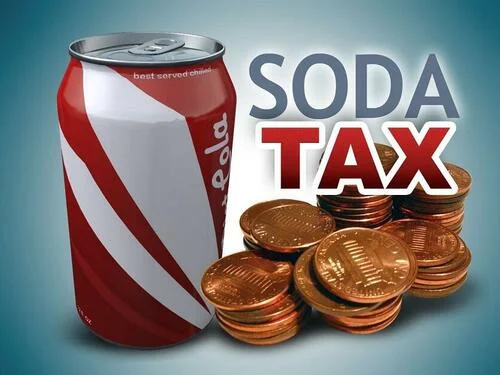A new study shows that Philadelphia's 'soda tax' on sugary drinks completely backfired.
According to researchers from the University of Georgia conducted five years after city lawmakers imposed a 1.5c per ounce tax on sugary drinks, demand for sugary drinks did drop by around 31% - however consumers simply turned to other sweets, or traveled to nearby towns to buy soda according to UGA Today.
People shopping for sodas outside city limits canceled out almost 40% of the decrease in sugar-sweetened beverage purchases.
Additionally, the soda pop tax actually led to about a 4% increase in purchases of other high-sugar goods in Philadelphia and in neighboring towns. But compared to the sugar decrease from sodas in Philadelphia, additional sweetened food purchases offset an additional 40%.
"Can we influence behavior through taxation? Yes, but only if you enact a policy at broader levels of government, such as at the state or national level that prevents people from cross-border shopping," said the study's lead author, Felipe Lozano-Rojas, an assistant professor in the School of Public and International Affairs.
Using nearly four years of data from Nielsen Retail Scanner Data aggregates checkout scanner statistics from participating stores across the country, researchers analyzed over 804 million weekly reports on purchases of sugary foods and sugar-sweetened beverages.
What's more, the soda tax disproportionately affected low-income individuals, as such taxes always do.
"You probably don’t need to run a complicated statistical analysis to know that if somebody charges you more, then you buy less," said Lozano-Rojas. "But it’s a double-edged sword from the standpoint of who is going to carry the burden of that tax. Low-income groups are going to be disproportionately affected."
Previous research has shown people with lower socioeconomic status tend to spend a higher amount of their pay on sugar-sweetened beverages. And the tax burden hits them harder than people who can afford the additional cost to continue purchasing their favorite drink.
Some experts may argue the taxes are working if they curb consumption and improve health. But there isn’t much definitive research on how soda taxes affect health outcomes in communities, Lozano-Rojas said. -UGA Today
"If we were to subsidize healthier options, especially for these groups, the tax might work better," said Lozano-Rojas. "Subsidizing water, making it more accessible, particularly in places where tap water is not drinkable, these are things that might make going with the healthier choice easier. I think this issue requires more of a magnifying glass into these populations to determine the causes driving excessive sugar-sweetened beverage consumption."
